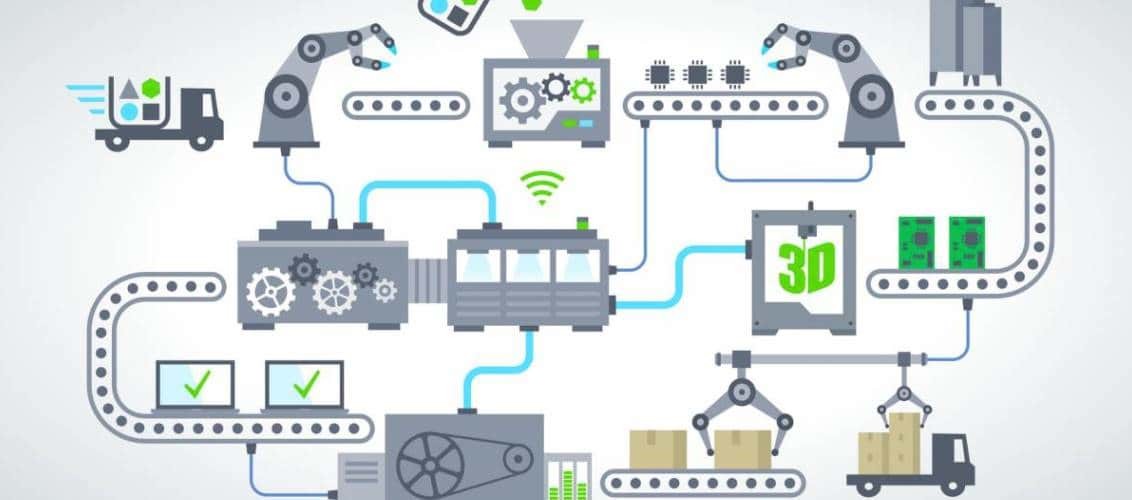
Industrial Revolution 4.0 and Social Values
Industrial Revolution 4.0, set to trigger fundamental socio-economic transformations across the globe.
Share
Terminologies adopted to describe it may differ, but there seems to be almost universal consensus that we are standing at the verge of a major technological revolution, i.e. Industrial Revolution 4.0, set to trigger fundamental socio-economic transformations across the globe. The complexity, scale and depth of this industrial revolution are expected to transcend those of its predecessors, as the bulk of imminent technological breakthroughs are likely to have an impact on the organization of our daily lives.
It is now conventional wisdom to suggest that the major impact of the First Industrial Revolution was to mechanize production through widespread deployment of water and steam power systems, as a result of which manufacturing spread across Western societies and started to transform the rural social fabric through waves of migration. The hegemonic power of the period, Great Britain, as well as its adversaries, attempted to maximize their colonial holdings and raw material reserves so as to maintain leadership of the technological transformation.
The Second Industrial Revolution brought in extensive use of electrical power to stimulate mass production, thereby triggering the formation of "industrial societies" associated with major social problems, such as haphazard urbanization, loosening of family and kinship ties, alienation of individuals, aggravation of income disparities, formation of hostile social classes, politico-ideological reaction movements, etc. In the meantime, late industrializers, such as the United States, Germany and Japan, joined the club of major global powers thanks to their adaptability to the new industrial framework.
The Third Industrial Revolution brought digitalization, microelectronics and information-communication technologies into production processes, thereby increasing opportunities for global connectivity, transfer of knowledge and finance, as well as transnational crimes. New players such as the East Asian tigers and India successfully benefited from this revolution to improve their respective standing in the global pecking order.
These days, there is widespread acceptance that a Fourth Industrial Revolution is brewing at an exponential pace through a sophisticated fusion of technologies that blur conventional lines between physical, digital and biological realms, while challenging the existing systems of production, management and governance. Potential opportunities that might emerge through increased connectivity, processing and storage capacity, automation and access to knowledge via breakthroughs in artificial intelligence, robotics, the Internet of Things, autonomous vehicles, 3-D printing, nanotechnology, biotechnology, materials science and quantum computing are enormous. But the potential for extensive social challenges, tensions and erosion of certain values is also colossal as we approach a new Industrial Revolution. To start with, increased automation and widespread use of robotic technology might substantially disrupt the existing structure of labor markets and escalate unemployment and could yield to greater economic inequalities over time. The gap between highly skilled, highly paid white collar employees and low skilled, low paid blue collar labor is set to increase at a greater pace with the added importance of technological integration and emphasis on innovation, which might, in turn, gradually weaken the middle classes and stimulate democratic apathy. But more importantly, intense exposure to mass communications, integrated knowledge systems and digital marketing is likely to eradicate the sense of personal and communal privacy. Both employees involved in the production and distribution stages of the economic cycle, and individual consumers will be closely monitored through artificial intelligence and digitization, which will leave very limited space for personal privacy. Furthermore, increased automation and digitization is bound to accelerate the isolation of individuals as economic units and weaken existing bonds of family and kinship. Traditional social relations that start from the family and expand through neighborhood groupings, religious affiliations and hometown associations could weaken, producing a vacuum of belongingness over the course of the paradigmatic transition. Common values transferred from one generation to the next, such as faith, ethics, decency, respect, tolerance, justice and compassion might be increasingly difficult to disseminate as humanity is surrounded by an integrated network of machines, robots and computers. When it comes to policy makers, state agents and regulators in the midst of all that, they will face the mammoth task of closely monitoring technological developments and taking necessary measures to promote national competitiveness, without disrupting local social balances and damaging social values.
[Daily Sabah, February 25, 2017]
Tags »
Related Articles







